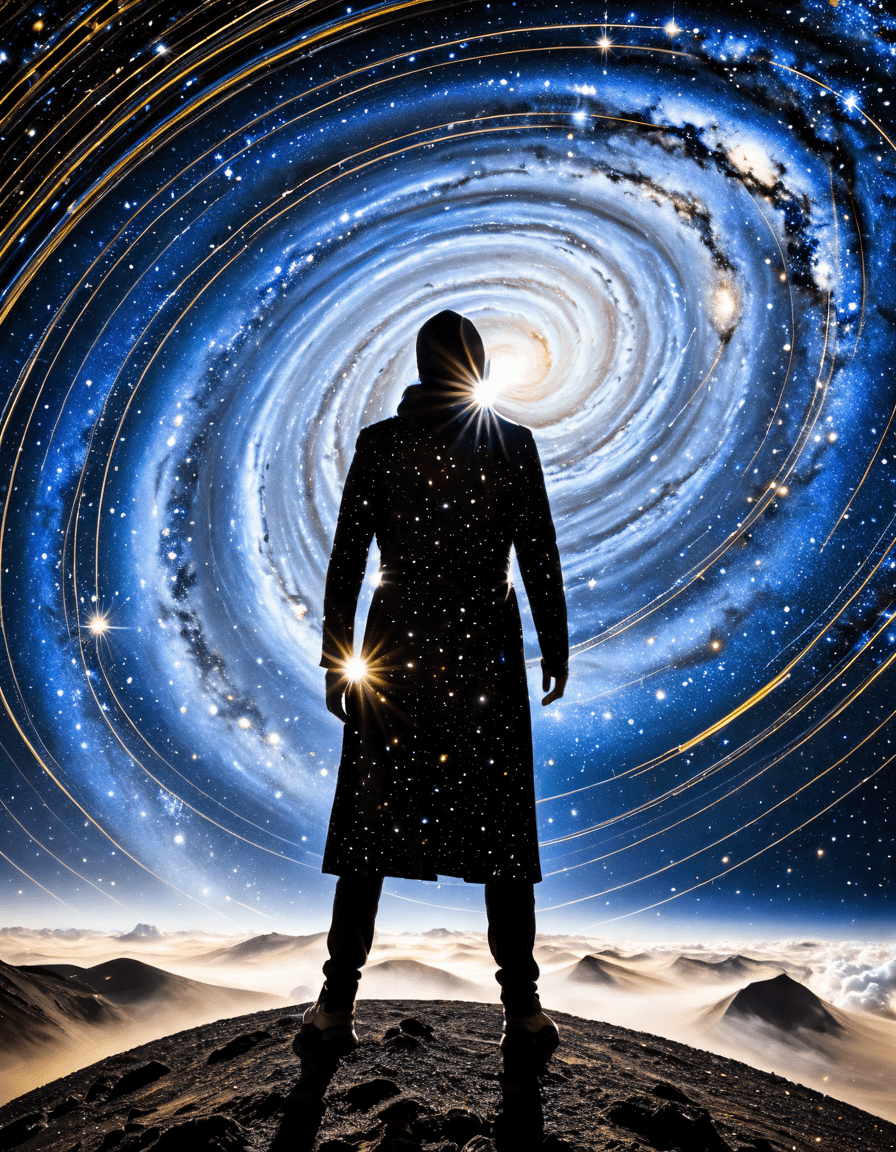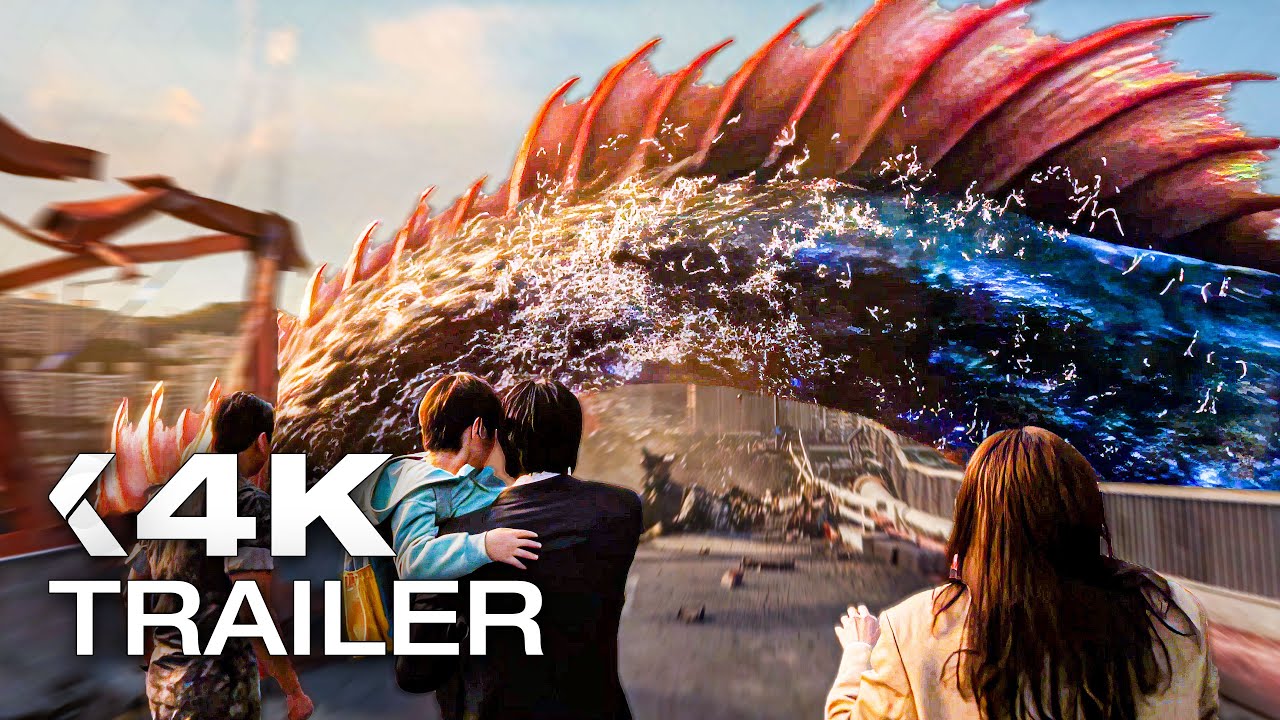Film is a kaleidoscope of human experience, intricately woven together by storytelling that captivates our minds. One such narrative style that consistently engages audiences is the omniscient perspective. This all-knowing insight—sometimes referred to as the God viewpoint—allows filmmakers to explore the depths of character motivation and societal themes. From cult classics to blockbuster hits, the omniscient lens adds a rich layer to storytelling that keeps cinephiles yearning for more. Let’s dive deep into the omniscient corner of cinema and analyze its profound impact on our viewing habits.
1. The Omniscient Perspective: Analyzing Its Role in Film Narrative
The omniscient point of view reigns supreme in the pantheon of storytelling devices. It offers audiences an unparalleled glimpse into the inner workings of a film, making us privy to knowledge that even the characters may not possess. This glimpse allows viewers to appreciate foreshadowing and anticipate conflicts brewing just beneath the surface. Films like “The Grand Budapest Hotel” and “The Shawshank Redemption” use this narrative style brilliantly, creating an emotional bond that extends beyond the screen.
When we look at “Everything Everywhere All at Once,” we see how directors harness this lens to convey the chaos of the multiverse while effortlessly stitching together the lives of its intricate characters. The omniscient insight cultivates emotional connections, enhancing our understanding of each player’s role within the larger narrative. The juxtaposition of characters’ ignorance against our knowledge makes for a suspenseful experience that keeps us glued to our seats.
Recent films continue to embrace this powerful technique, reminding us to engage critically with the narratives before us. The multifaceted stories woven through the omniscient perspective encourage viewers to reflect not only on the characters but also on the nuances of their own lives. This storytelling angle unveils vast landscapes of human experience, urging us to question our own roles within society.

2. The Top 7 Films Embracing Omniscience and Their Impact on Audience Perception
Diving into films that master the omniscient narrative reveals tales that challenge our perceptions of existence, power, and social roles. Here are seven influential films that exemplify the omniscient perspective:
This cinematic wonder unveils a dystopian reality where humans are subservient to machines. As Neo awakens from complacency to rebellion against a hidden truth, we grasp how knowledge alters perception and drives the human spirit.
A modern masterpiece that uses the omniscient lens to explore class dynamics. By revealing the stark dual lives of its characters, the film critiques entrenched societal hierarchies, showcasing the moral and existential dilemmas faced by the poor and the wealthy alike.
Here, an AI offers a unique omniscient perspective, digging deep into human emotions. The film examines an often overlooked aspect—our connection to technology, loneliness, and the essence of consciousness itself.
A fascinating exploration of personal autonomy, this film critiques life under the omniscient gaze of a constructed reality. Truman’s journey from complacent existence to enlightenment resonates deeply with viewers questioning the nature of their own realities.
Del Toro’s kaleidoscopic world brings forth omniscient insight into love and loneliness. Characters reveal their vulnerabilities against societal norms, emphasizing their fragile position in a world filled with oppression.
This true story dives into the complexities of mental health through the eyes of mathematician John Nash. The omniscient perspective unveils the internal struggles and external perceptions that shape the mind and challenge our understanding of reality.
This nonlinear narrative invites viewers to observe the layers of memory and attachment. Through the omniscient lens, the film prods at the toxicity of relationships while encouraging self-reflection on love and identity.
3. The Cast of Subservience: Characters Shaped by Omniscient Narratives
The beauty of the omniscient narrative lies in how it deepens our understanding of character complexity. Take “Parasite,” where the Kim family embodies desperation and ambition, ultimately confronting the lengths one may go to integrate into a wealthier class. This moral conflict highlights the pervasive nature of social hierarchies, prompting conversations about privilege and subservience.
“The Matrix” ushers viewers into Neo’s journey from submission to empowerment. He transforms from a law-abiding citizen to a pivotal figure leading the revolt against unseen forces. This character evolution starkly illustrates how awareness of one’s circumstances can ignite a hunger for freedom.
Even in “A Beautiful Mind,” John Nash’s delusions and acceptance of truth showcase the intricate dance between cognition and reality. The omniscient narrative sheds light on the cognitive subservience imposed by mental illness, inviting viewers to explore the authenticity of their perceptions and societal influences.

4. Reflections on Omniscient Narratives and Their Reflection of Societal Norms
The omniscient perspective encourages poignant commentary on societal norms and individual agency. Films like “The Hunt” and “Snowpiercer” lay bare the consequences of complacency within oppressive systems. By presenting protagonists challenging the status quo, these narratives provoke critical dialogues about moral choices and institutions that shape our lives.
Cinematic storytelling continually reflects our realities, inviting us to question our own complacency. As characters confront maleficent forces, audiences become more aware of their relationships to authority and power dynamics. The omniscient lens serves as a mirror, reflecting our fears and aspirations back at us.
As streaming platforms proliferate, these omniscient narratives reach wider audiences, spurring critical discussions about knowledge, authority, and personal agency. By navigating these stories, viewers are better equipped to engage with the complex realities of their world, inspiring them to question complacency and re-evaluate their roles in the social fabric.
Embracing Omniscience: A Call for Critical Viewing
Next time you settle into your theater seat or log into your favorite streaming service, remember the omniscient perspective isn’t just a storytelling device—it’s an invitation to reflect. In every frame, amidst every plot twist, consider what these stories reveal about your own life and societal positioning. The intricate interplay between knowledge and power in these narratives leads us to challenge complacency, enrich our understanding of character development, and confront broader societal implications. Let’s embrace this omniscient lens and revel in the beauty of cinema, where stories become a bridge to understanding our own existence.
Omniscient: An Exploration of All-Knowing Perspectives
A Peek into Storytelling’s Magic
The term “omniscient” often calls to mind literary giants who have wielded this all-knowing narrative technique with flair. Think of authors like George Orwell, who, with a sweep of his pen, could dive deep into the psyche of his characters. The use of omniscient narration adds a thrilling layer to storytelling, enabling authors to present multiple viewpoints in a single work. This technique isn’t exclusive to literature; directors like Alfred hitchcock have also mastered it, infusing their films with a suspenseful tension that keeps viewers on their toes. When we watch a flick like The King of Kings, it’s captivating to feel as though we’re privy to the thoughts and intentions of several characters at once.
The Omniscient in Pop Culture
When it comes to performances, we’ve seen omniscient wisdom search for humor, heart, and a dash of absurdity. Take Jesse Tyler ferguson, who often brings a charming layer to his characters, leaving audiences both entertained and enlightened. Similarly, in modern cinema, actors like George Mackay remind us how versatile the notion of all-knowing can be. His roles often lead us to consider not just what we see but what lies beneath the surface—a testament to the depth that omniscience can provide in a film. And let’s not forget music—Taylor Hawkins, the legendary drummer, often encapsulated emotions so profoundly that it felt as if he could read the feelings of every listener in the room.
Where Omniscience Meets Reality
Even in our daily lives, the quest for omniscience is evident. Take video games like Pokémon, where players are continually “invoked” to push boundaries in pursuit of all knowledge—to be the very best—like those old-school aspirations in HeartGold and SoulSilver. The omniscient experience in games represents a desirable knowledge that keeps us coming back for more. But here’s a quirky turn: omniscient insight can even play a role in our understanding of the everyday, like contemplating seemingly odd questions about health, such as, What do Hemorrhoids feel like? We sometimes seek all-knowing answers to our most human experiences, which ties back to the universal desire for information.
With the multiple layers omniscience brings, whether in storytelling, performing arts, or everyday curiosity, it’s clear that there’s something inherently fascinating about seeking that all-encompassing insight. It’s a journey worth embarking on—a vivid exploration of what it means to truly know and understand the fabric of life itself.



![The Prophet: Omniscient Reader (2025) Teaser Trailer 3 | Lee Minho,Jisoo,Ahn Hyoseop [ENG SUB]](https://www.cinephilemagazine.com/wp-content/cache/flying-press/c79dad4f3988959eb6a8029cd3d959f8.jpg)
![The Prophet: Omniscient Reader (2025) Teaser | Lee Minho,Jisoo,Ahn Hyoseop [ENG SUB]](https://www.cinephilemagazine.com/wp-content/cache/flying-press/7779578d0e9f6c7cb81aeb6c4a2410d3.jpg)



